Nightmare Cinema – Exclusive Interview with Mick Garris

Ten years after launching his critically acclaimed “Masters of Horror” series on Showtime, writer, director, producer and all around nice guy Mick Garris has partnered with Good Deed Entertainment for Nightmare Cinema, a collection of five stories from five masters of horror, to be released worldwide next year.
Scheduled for principal photography in early 2016, the scary shorts are expected to run about 20 minutes each, and they will be directed and penned by the following renowned talent from around the world:
- Joe Dante (The Howling, Gremlins), who will direct “Mirari” by Richard Christian Matheson
- The UK’s David Slade (“Hannibal,” 30 Days of Night), who will direct “This Way to Egress,” which he co-wrote with Lawrence C. Connolly, based on Connolly’s short Traumatic Descent
- Japan’s Ryuhei Kitamura (Midnight Meat Train, Versus), who will direct “Mashit” by Mexican author and filmmaker Sandra Becerril
- Cuba’s Alejandro Brugues (Juan of the Dead, “From Dusk to Dawn: The Series”), who will film “The Thing in the Woods,” which he also penned
- Mick Garris (“Stephen King’s The Stand” and “The Shining”), who will direct his own short story, “Tyler’s Third Act”
Dread Central: Can you give us a little background on this new project?
Mick Garris: Ever since “Masters of Horror” when we did the Japanese episodes, I wanted to get different voices from around the world. Bringing Dario over was great. [When we did] the two Japanese episodes, one each, we did them in Japan and with a Japanese crew and everything. What I’ve been trying to do is a one-hour series; each [episode] would be shot in a different country with a director from that country. People always [ask,] “With legends from that country?” No, just stories that are set there. Just like “Masters of Horror” telling a great story, but featured in this country with a director from there. Everybody but me thought it was too ambitious. We were able to do the Japanese ones. We went through a Japanese production company with Kanakawa, and they release them theatrically as well as the “Masters of Horror” right for Japan. So, I thought why can’t we do this 13 [times in a] season? Everybody was terrified by that.
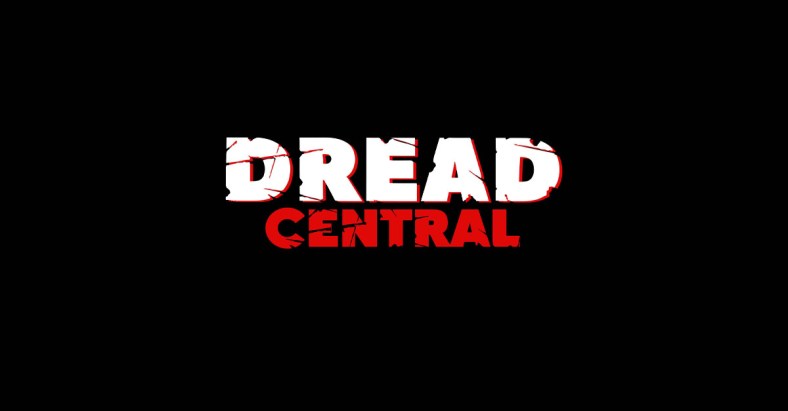
DC: Yeah, I can imagine. The different laws in different countries for creative rights…
MG: [What I initially thought was], “Just go through a production company you trust in each of these areas. It wouldn’t have to be 13 different countries, but it could be a half dozen of them. Maybe we do three in the US, a couple in the UK, a couple in Japan, mix it up…” But [that is] too ambitious. So, I thought it might be interesting to do a series of low budget features that way and do 90-minute movies under the umbrella title Nightmare Cinema, and that was difficult to do as well. Nobody wanted to commit to multiple movies like that.
DC: That is a big commitment.
MG: Yeah, but depending on the budget, you could do six movies for what most people would pay for one or two. [It was] just never was the right timing [for] this concept of doing five stories but in a feature. Tales of Halloween was great, but they were 10-minute stories, and often they were [formulaic.] Basically punchline horror stories.
DC: Yours are 20 minutes long?
MG: Yeah, 20 minutes each on average. I ran into somebody when I was doing publicity at Hafco Embassy back in the day. This guy, Lenny Shapiro, did sales for Hafco National sales and everything. He just joined up with a new company called Good Deed Entertainment, a good match for Nice Guy Productions. I met with a couple companies [who] were interested in doing the shorts for online streaming, websites and YouTube channels, things like that- which would be fine, but I’m a movie guy. I love movies and TV, and the mass audience reaching. Horror is best experienced – like comedy – in a group. In an audience [it feels] so theatrical, [so that] is always the way I’d rather do it. [Good Deed Entertainment] loved the idea of this being a feature film of five complete stories, and the idea of it being a mix of international filmmakers. All of these guys live in LA, so we would shoot it in LA, but each one would have a different taste. Two of us are American – Joe Dante and me – and David Slade is from the UK. [He did] great work on “Hannibal” and Hard Candy and 30 Days of Night. He’s a Brit, though he works mostly in Canada. Ryuhei Kitamura and I have tried to get a couple things off the ground together. He did Midnight Meat Train, and Versus was the movie that really brought him attention.
DC: I did a set visit on Midnight Meat Train and was impressed by his visuals.
MG: Yeah, it’s very visual, he’s really in touch with [emotion] as much as intellect. It’s very instinctual, and I loved that. That’s what I wanted on “Masters of Horror,” directors who have a distinct vision. It’s not we’re all making a TV show that we want to look like the same style. [We] emphasize everybody’s stylistic differences and their personalities.
So [we work] with him, and Alejandro Brugues, who’s Cuban. I loved [his] Juan of the Dead.
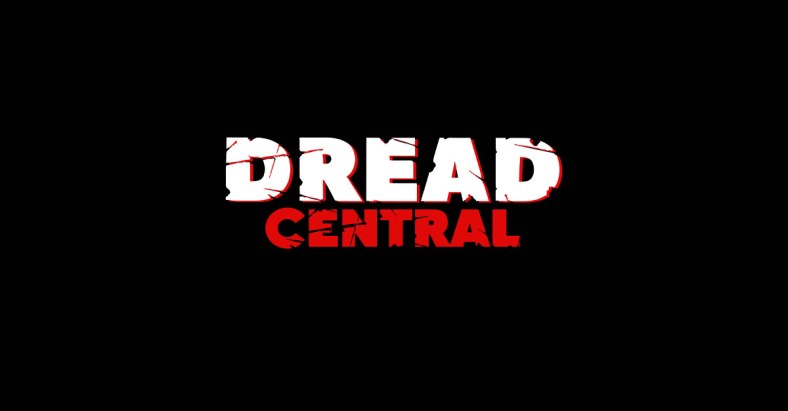
DC: I didn’t see that.
MG: You’ve got to see it, it’s really good. He also did the “From Dusk Till Dawn” TV series episodes, which I was supposed to this year, [but] the timing didn’t go well. Each of these guys has their own cinematic vocabulary and a lot of it comes from where they are from, and yet we don’t have to go to their different countries to do it because everybody now lives in LA.
DC: Yeah, so that’s how it’s different from, say, ABCs of Death where it is from all over the world, but it’s people working in their own vacuum and then submitting for the anthology?
MG: Without any money to do it – and, again, if you’re doing 26 little movies, they can’t be more than 4 or 5 minutes. In this case, [we ended up with] totally unrelated stories. I loved the Tales of Halloween weaving elements in and out of each story, and they were all taking place on the same night in the same town.
DC: Yeah , that’s part of it being an anthology. But, like you said, here we have 5 completely different stories. You were the producer, the person hand-picking the directors, and curating… will this feel like a Mick Garris production?
MG: I’m not sure about that. Right now, the concept is that it’s going to be in an old movie theatre and then the curtains open, and [after they play] the first movie they slam shut. Something like that because I want [the stories] to stand apart. They’re being produced independently of each other. It’s not going to be back-to-back like “Masters of Horror.” Even though we emphasized [on “Masters of Horror”] that it [would have] different stylistic approaches for each one, we had the same crew on all of them. This will probably have different DP’s for each one that the directors will bring in. As far as material goes, I [chose] people that I knew and worked with. David Slade had a story he wanted to tell already. It’s based on a short story. He and the writer of the short story collaborated [on Slade’s screenplay]. I spoke to Richard Christian Matheson and thought he and Joe Dante would be a good match, especially because his father worked [with Joe Dante] at one time. I’m adapting one of my own short books for [my tale].
DC: Do you have a female screenwriter on any of the stories?
MG: Very much so. The woman wrote an incredibly brutal script, much more so than anything I’ve ever done before, and I’m always looking to evolve and stretch the boundaries a little. The woman had a great idea and we ended up putting her together with Ryuhei Kitamura to come up with a story. This is the first thing she’s written in English from beginning to end. It’s an exorcism story, sort of, but it’s misleading. We just came up with a different twist, and we are doing some tweaks on the story right now. Then, Alejandro has an idea he’ll be writing his own.
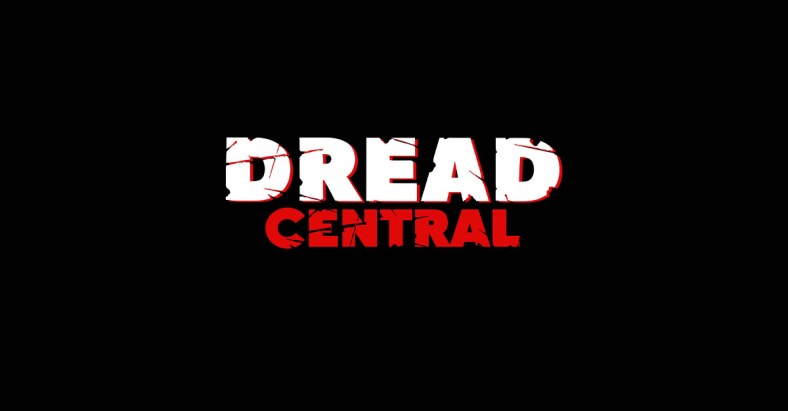
DC: So tell me, what is “Tyler’s Third Act”?
MG: “Tyler’s Third Act” was a long short story that Cemetery Dance decided to publish in their novella series. It’s an illustrated novella by William Stout, who did a lot of underground comics in the 70s. He’s also, like, the premier artist of dinosaurs – text books and all these things.
DC: I didn’t know there was such a category.
MG: Yeah, he’s this amazing cartoonist and fine artist and in recent years, he’s kind of devoted his life to wildlife and ecological art and the Antarctic. He’s taken voyages there… just an amazing, really talented guy. I’ve known him for 30 years, and we never worked together [prior to that]. He production designed the Return of the Living Dead and Masters of the Universe, [and for us he made] all these illustrations. I gave him no guidance. [He did] the cover and stuff. [“Tyler’s Third Act”] is an illustrated story and was released as a very slender volume. It’s about a failed screenwriter who can’t get arrested and lives in an apartment in Sherman Oaks, right on the watch.
He’s got a mother who’s in a rest home who doesn’t even know who he is anymore, and he decides he can’t afford to keep up with her care. What’s he going to do in 60 days when her rent runs out? He decides he’s got a new idea on how he’s going to make his mark. He’s going to commit suicide but he’s going to dissemble himself on live internet web streaming, [charging] $100 for each time he would take a body parts off. That’s the beginning of it.
DC: Oh my gosh, that’s only the beginning? Have you got casting in place for these yet?
MG: No, we’re still in the writing stage, but we’ve made our deal and three of the scripts are already written, two of them are on the way but we are on the development process. Good Deed went to AFM and they had a lot of interest in it as a series, and less interest as a movie, but we’re thinking about it being a movie that is also a pilot because [that would be] a win-win. It could still can go into a theatrical first, and then it could spin into an hour long weekly anthology series.
DC: Yeah, anthologies are just so popular.
MG: They’re not really theatrically successful, and even in television people are calling things anthologies [incorrectly], like Max Landis has a new series, but it’s a different arc each season, rather than a different story.
DC: So like “American Horror Story”?
MG: Exactly.
DC: Kind of an anthology series, but…
MG: [It would be like] “True Detective” – it’s a series that changes every season. So, [it’s] a true anthology, like “Masters of Horror,” “Twilight Zone,” like “Outer Limits”, but its self-contained each week.
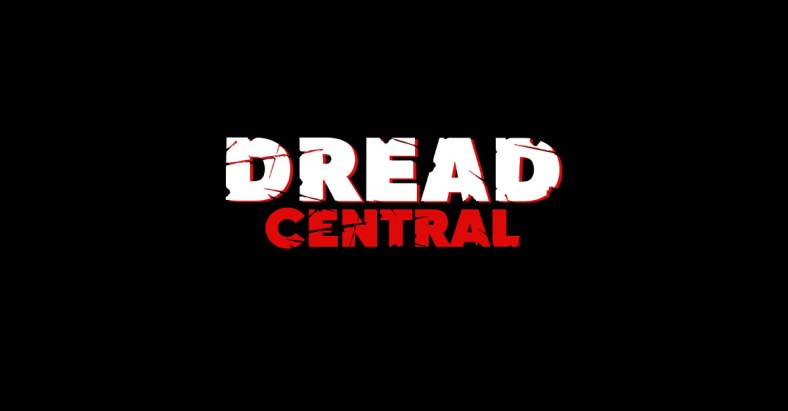
DC: What is it about that format that makes you want to keep revisiting, as opposed to doing several narrative films as back-to-back features?
MG: I’d love to be able to do that, but I don’t get the opportunities. I’ve been able to work more in television than in theatrical features but it goes back to my first job was “Amazing Stories.” I first made my living as a writer on that and in those days, in the 80s, I never watched regular TV series, I didn’t have the time or the interest to get to know that family you visit every week. Now, with binge-watching, television’s better than movies. Unless you’re a comic book fan, what else is out there? The real quality stuff is on Netflix, on HBO, on Showtime, Starz, Amazon’s got great stuff, Hulu… but my start was on a series that was different every week. It had antecedents in “Twilight Zone” and “Outer Limits” and “Alfred Hitchcock Presents” that were true anthology stories, so that was my love, because it was a different little movie [every week.] I didn’t watch any continuing series back then. I didn’t really like them. Now, it’s a different world and I would love to create a series that was a continued series of stories, but this is a way to make movies every week. In this case, there’s five little movies in one. If that’s successful, maybe we will do one or two of those a year, or maybe we’ll turn it into a 13-episode series.
DC: It’s great that you have so many outlets and options these days, as opposed to the 80s when there weren’t a lot of different options.
MG: No, they remade “Alfred Hitchcock”! They remade “Twilight Zone”!
DC: Right, what was it? “Tales from the Dark Side”?
MG: “Tales from the Dark Side,” which was done on a really tight budget, with George Romero and Richard P. Rubinstein. “Freddy’s Nightmares,” which I did one of. “Tales of the Crypt,” which I did one of, so I have a long history with horror anthologies.
DC: Oh yeah you do, you’re keeping it alive. Did you watch “Black Mirror” at all?
MG: Oh, I loved “Black Mirror.” That was an anthology, and they’re making it for Netflix. They’re doing another season. With Charlie Booker, too. He also has a satire show like “The Daily Show” where it’s a weekly thing, more like the John Oliver series. He talks about the news of the week, and he’s hilariously funny, but it’s weird, because in the UK they know him for that. Then “Black Mirror” came out, and then he created and wrote most of those and that’s what I saw first, so I had no idea [he is so funny.] I thought “Black Mirror” was genius.

DC: There’s so many great choices, and people, like you said, are binge-watching. What else have you got coming up? Any new books that we could check out?
MG: Yeah, I just had a novella released in Dark Screams Volume 5 which is a Cemetery Dance/Random House collaboration. [It’s] an eBook only. That story is called “Everything You’ve Always Wanted,” and more than half the book is that story. It’s a novella that’s also another Hollywood story. We’ve got a washed-up filmmaker who gets invited to a world horror convention sort of thing in Indianapolis to celebrate the 25th Anniversary of his one successful movie called Axed, and things don’t go the way he planned.
DC: I can imagine they would not, if they are in one of your stories.
MG: And then the next [project] – I have another novella coming out, a self-contained book from Cemetery Dance called Ugly about a plastic surgeon who is offended by anyone who’s less than beautiful, and that gets stood on its ear as well.
DC: That’s a novella as well?
MG: Novella coming out early next year.
DC: You’re busy!
MG: I just attached myself to two other features as a director for hire, which I haven’t done much of, except the occasional episodic things like “Pretty Little Liars.” There’s a new one coming out in January that I did, Episode 2 for [a show] called “Shadow Hunters.” It’s based on a YA series of books, “The Mortal Instruments” series.
DC: So, the two narrative features that you’ve been hired to direct, are they horror?
MG: Both of them are. I can’t say what they are, and I don’t think they are fully financed yet. I’ve also written a pilot based on a Stephen King story that we’re in the process of shopping, and we’ll see what happens with that, [as well as] more things I’ve had in the works for in a decade.
DC: Wow, that’s great. When I said you’re busy, that was an understatement.
MG: You know, from when I went from writing Riding the Bullet, the post for that overlapped the prep for Desperation, and the post for that overlapped the prep for “Masters of Horror” for Season 1 so that was like the ultimate time of my life creating…
DC: Yeah, and that’s about when we met, right?
MG: Yeah.
DC: I met Cliff Robertson on the Riding the Bullet press tour and then went up to Vancouver where you were shooting “Masters of Horror” with Henry Thomas.
MG: He’s great. When you meet somebody you can work with, and love the experience, and they make your work better, why would you not want to do that again? That’s why I’ve worked with Matt Frewer so much; he’s been in six of my things, including “Bag of Bones.”
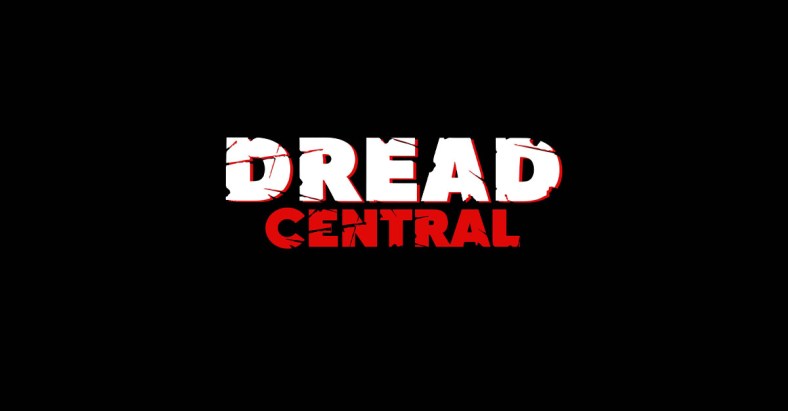
Categorized:News


